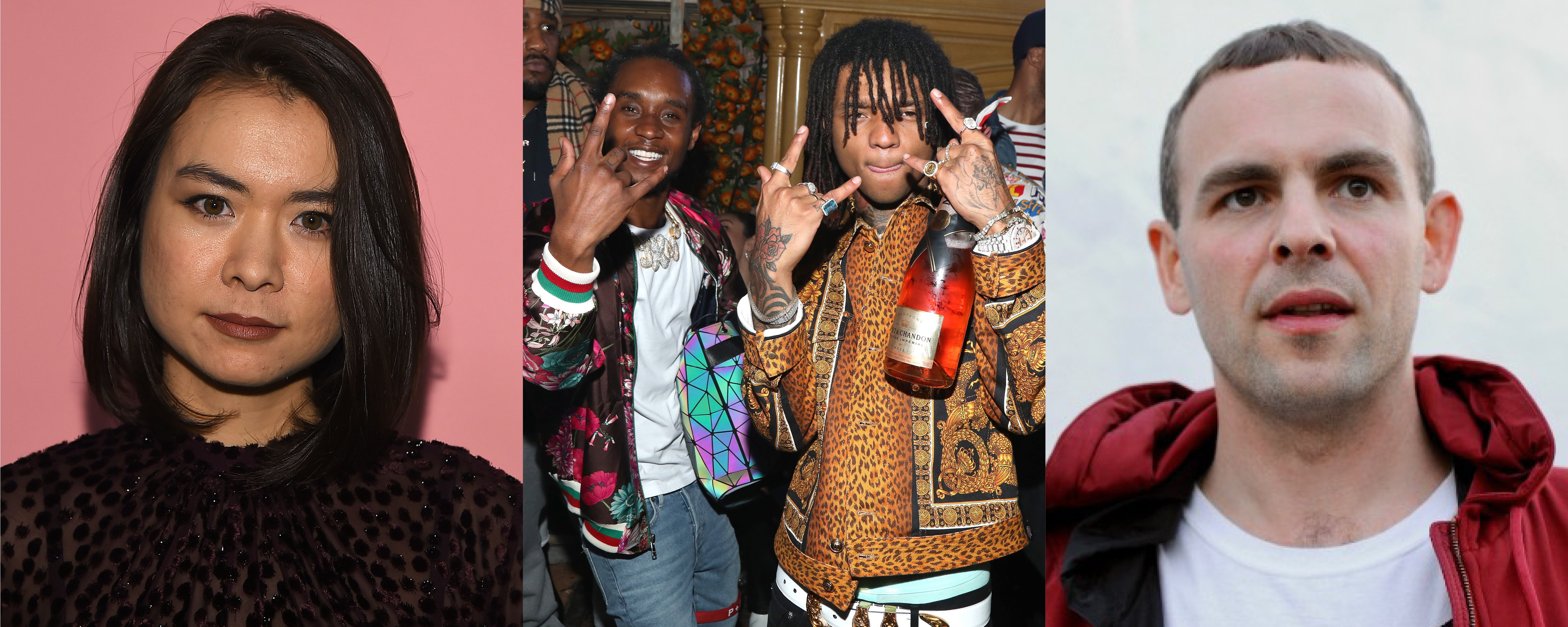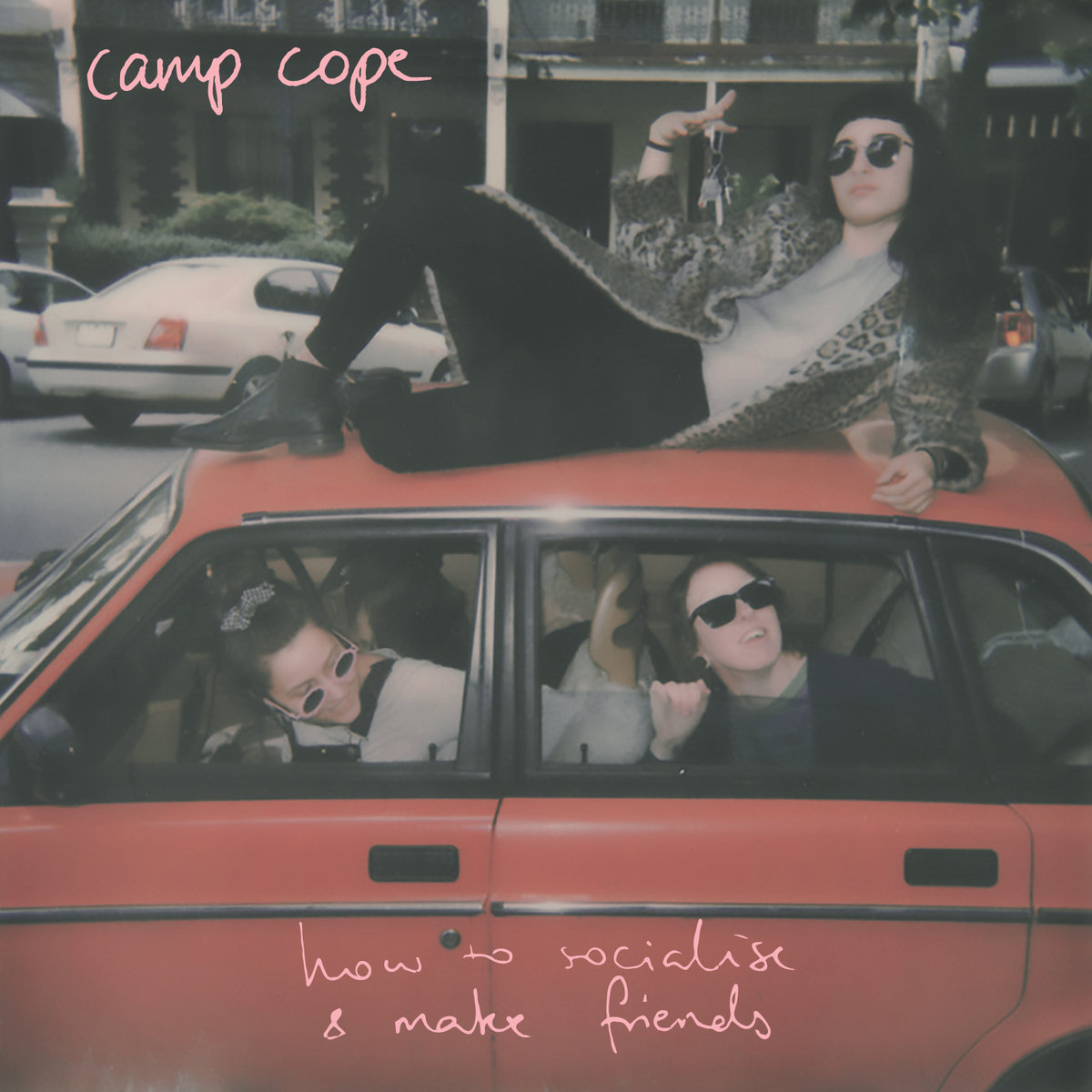Look right past the charming title: Camp Cope don’t care about a popularity contest. On How to Socialise & Make Friends, the Melbourne trio double their catalog of scrappy, folk-infused emo rock, handling the toughest of subject matter with an approachable slacker vibe that’s comforting and galvanizing at the same time. Singer-songwriter and guitarist Georgia McDonald (“Georgia Maq”), bassist Kelly-Dawn Hellmrich (“Kelso”), and drummer Sarah Thompson (“Thomo”) aren’t reinventing the three-piece punk trio, but their empathetic, starkly personal music feels vital nonetheless.
In 2016, Camp Cope’s fledgling self-titled debut was an intimate collection of songs where alienation and depression went hand-in-hand with barbed political commentary. On Friends, Maq takes the introspection deeper, even as the band appear publicly poised to join a new feminist indie vanguard alongside acts like Cayetana and Alex Lahey. They raised a stir at Australia’s Falls Fest in January, distributing t-shirts condemning sexual assault and changing the lyrics of their boys’-club protest “The Opener” to criticize organizers for a dearth of female artists. Maq has said the #MeToo movement emboldened her to record “The Face of God,” a damning account of sexual assault in the music scene, and told cis white men that the new album is “not for you.”
The stated intention was to make Friends true to life, “no frills,“ and it’s not as though Camp Cope had luxuries to spare. There are no showy solos and the production is minimal; if you were feeling generous, the sound itself could work in protest against the type of macho one-upmanship Maq skewers on “The Opener.” With so little surrounding them, Hellmrich’s bass licks have a chance for real personality (frustrated resignation to counterpoint Maq’s anger on the aforementioned “Opener,” probing self-reflection on “Sagan-Indiana”). Thompson’s adamant and deliberate drumming unifies the band’s message with more propulsive clarity than they’ve ever managed before.

Also Read
The 51 Best Songs of 2018 So Far
But it’s Georgia Maq’s raw-edged vocals you’ll remember, and the consistency of the musical canvas opens space for her to work. Her lyrics articulate human entanglements with a lack of sentimentality that belies how much she cares, and like Hop Along’s Frances Quinlan, she has a gift for evoking shame hand-in-hand with fury. “He left a key hidden by the back door but I never showed up / There was something sleazy about it that made me wanna rob the place and run,” she sings in the opening lines of the title track, a breadcrumb trail into a situation so fraught its precise details never fully resolve. It feels very small—don’t we all?—but in her half-shouted style, Maq makes it linger. “I can see myself living without you and being fine!” she yells, and when she rides into the sunset it’s on her bike, under her own power.
If there’s one factor that justifies tagging Camp Cope as “emo,” it’s the way Maq’s characters tend to feel less like the sum of their actions in life than of the emotions they’ve left in their wake. “Sagan-Indiana” and its sister song “Anna” are a crest ahead of a quieter second side that feels more diaristic and openly self-conscious. The vulnerability inherent throughout this not-very-long album sets up its most transcendent moment: Closer “I’ve Got You,” an acoustic dedication to Maq’s late father, Australian musician Hugh McDonald, who died from cancer in 2016. Recorded in a single take, it is both achingly sad and the only pure love song of the bunch. You’ll listen without crying sometimes.
Camp Cope play more tightly together now than they did before, and it doesn’t require much else to achieve straightforwardness and a proudly DIY aesthetic indebted to old-school riot grrrl. The band’s actions at Falls Fest should have come as no real surprise: Camp Cope are tired of seeing women’s bands get short shrift and they say so from the jump. Beneath the tenacious, cynical sneer that allows Maq to come off as more dangerous than Courtney Barnett lies an ugly irony: Nothing she and her bandmates have said on How to Socialize & Make Friends or previously is new. It’s just that not much has changed yet.




